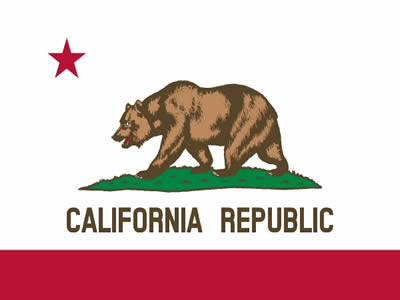When the Unlawful Internet Gambling Enforcement Act of 2006 (UIGEA) was passed, it basically crippled the rights of all 50 US states to authorize their own gambling. Not that it’s any shock the federal government decides to be dictatorial, of course; it’s been happening more and more since the Constitution—a document that expressly forbade such action—was ratified. Though sometimes government overreach gets fixed, like when the Department of Justice ruled in 2011 that individual states have the right to set their own gambling laws regarding online gambling, and it isn’t the federal government’s place to interfere. Not all gambling, of course; sports betting (per PASPA) still had to remain illegal outside of Montana, Delaware, Nevada and Colorado, but legalized online casinos and poker were fair game, if the state decided. This, of course, led to Delaware, New Jersey and Nevada releasing some limited gaming sites.
After a few years, other gambling states in the US started to get on board, including California. Over the past decade or so, California has really been making a push to increase its gambling presence. Every year more and more tribal casinos are allowed in the state, and certain factions in the legislature today want to get online gambling legalized in California. However, the anti-gambling contingent in the legislature just received some fuel when a report broke that California isn’t exactly doing enough, allegedly, to help out with compulsive gamblers.
In today’s California, gamblers can visit over 60 brick-and-mortar tribal casinos, and also play in one of the nation’s largest lotteries. A few years ago, gamblers in the state would have do their gambling in backroom card clubs and racetracks. Unfortunately, with the groundswell of gambling comes more people addicted to gambling. It is estimated in California alone that 1.5 million people are pathological gamblers. There are two big issues here: 1) More problem gamblers could be on the way with more legal online gambling options available. 2) The state is doing little to help these gamblers.
The more libertarian-type of person may feel as if individuals are responsible for individuals, and lacking the ability to gamble responsibly is not the state’s problem and should not be a state issue, a taxpayer issue, nor should it reflect poorly on the majority of people who can gamble responsibly. However, California is a very progressive, borderline collectivist state, and people in trouble in the state will become a social issue, especially if it’s ignored to the point they pile up in the millions.
What this can do, very easily, is change even the pro-gambling part of the legislature’s mind. To date, only 1/5 of California’s problem gamblers are receiving help for their addictions, and many are saying that it’s because the state isn’t doing enough to help. Ironically, however, California already offers much more than most other states. Rather than just having a 1-800 number as a website, California actually has professionals who can assist and help people receive actual treatment for a problem considered to be pathological. But why aren’t more problem gamblers seeking treatment? This is the million-dollar question.
According to Dr. Timothy Fong, UCLA’s Gambling Studies Program co-director, most people are simply not seeking the treatments available. Whether it’s because they’re too proud, in denial, don’t want to be stigmatized, or other reasons, 80% of estimated problem gamblers are denying treatment, so what the state could possibly do remains a mystery. Mandatory treatment isn’t an option that would go over well, and devoting more resources to even more treatment seems like a waste.
The biggest fear for gamblers at this point is that the legislature will panic due to the problem portion and cancel their plans to legalize online gambling in the US. No one knows for sure what the answer is. More education, more money in treatment, or just let people make their own mistakes. However it ends up, it will be a shame to have a few percentage points of California’s gamblers becoming compulsive ruining the entire genre for everyone else. Of course, one’s heart goes out to gamblers who develop a pathological problem. But the overwhelming majority of gamblers are responsible. What are they supposed to do about the few people who shouldn’t be gambling in the first place? Why should the fringe get to dictate the freedoms of the majority?

